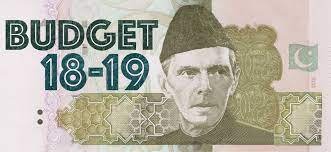The caretaker government made this decision due to the country’s challenging financial situation. The interim federal government has decided to reduce spending significantly in an effort to demonstrate a surplus of Rs600 billion on behalf of the provinces during the current fiscal year and to meet the International Monetary Fund’s (IMF) condition of reducing the financial deficit of the Centre.
“It has also been agreed that any new projects under the annual development program would not be launched,” stated the finance ministry. The federal government has opted not to initiate any new schemes under the Annual Development Program in the current fiscal year to curtail expenses. However, the ongoing development projects will continue to receive funding.
The Special Investment Facilitation Council (SIFC) also supported the proposal. Sources report that the federal government will distribute the subsidy for electricity, gas, wheat, and fertilizers among the provinces based on their population. Wheat and fertilizers were imported at the request of the provincial governments. The Trading Corporation of Pakistan bears an import liability of over Rs2 trillion, with provincial governments having not paid their share for several years.
A law is being drafted to involve provinces in development projects and subsidies. If needed, the finance ministry may propose changes to the National Finance Commission (NFC) Award. The federal government aims to achieve a substantial reduction in expenditure before its negotiations with the IMF in November, as the provinces must exhibit a surplus of Rs600 billion for the current fiscal year under the global lender’s loan program.
A recent report from Topline Research, titled ‘Pakistan IMF Loan Review: Funding Requirement, Primary Deficit, Gas Pricing & Monetary Policy,’ suggests that, despite facing challenges in meeting certain benchmarks, Pakistan is likely to receive the next tranche from the global lender. The IMF’s Executive Board may grant a waiver if it deems the program to be viable, taking into account missed structural benchmarks and indicative targets in the overall performance context.
Pakistan secured a nine-month Stand-By Arrangement (SBA) from the IMF worth $3 billion in June 2023, marking a significant achievement following its previous $6 billion program failure. The SBA exceeded expectations in terms of both duration and size. Under the $3 billion SBA, Pakistan received $1.2 billion in July 2023 and expects an additional $700 million upon the successful completion of the first review. The government is also exploring commercial loans worth $5 billion and another $0.7 billion from various sources, aiming for total projected foreign inflows of $26 billion for FY24. In November, Pakistan is set to receive another $700 million under its $3 billion loan program if recommended by the IMF’s review mission.
